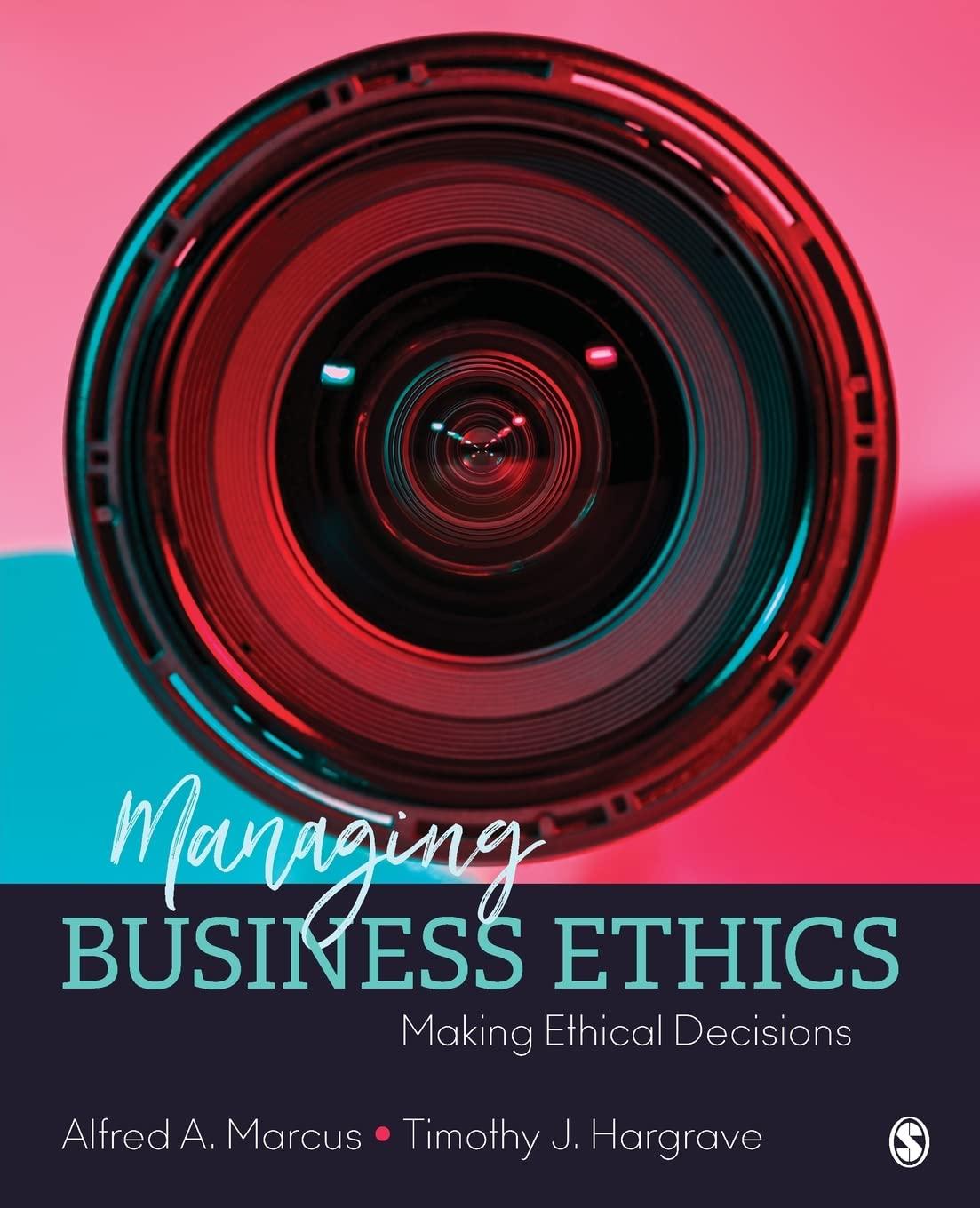You run a die casting facility that produces metal tools used in industry. (Dies are essentially molds
Question:
You run a die casting facility that produces metal tools used in industry. (Dies are essentially molds that are filled with superhot molten metal to make metal products.) Competition is fierce in your industry, so keeping costs down and delivering quickly on orders are important to your company’s survival. There are a lot of accidents in die casting; in fact, the rate of accidents in the industry is twice the industrial average. 46 Your facility has an even worse safety record than the industry average. You are not proud of this but look at it as “the cost of doing business.” You don’t see how your facility can keep costs down and delivery times short without accepting a high accident rate.
One night after work, you are browsing YouTube and come across a speech by Paul O’Neill, the former CEO of aluminum producer Alcoa. O’Neill is talking about how safety at Alcoa was not just a priority but rather a precondition. (See the discussion earlier in the chapter.) At first, you dismiss O’Neill’s message but then, after setting aside your confirmation bias, decide to keep listening. The more you hear, the more intrigued you are. You start to wonder if O’Neill’s message might be applicable to the die casting facility you run.
Using the weight-of-reasons framework, speculate about the benefits and costs of a new approach to die casting that emphasizes worker safety. Who are all the stakeholders that would be affected by a shift to a new, safer production method? Give special attention to how such a change might affect the company’s profits.
Step by Step Answer:

Managing Business Ethics Making Ethical Decisions
ISBN: 9781506388595
1st Edition
Authors: Alfred A. Marcus, Timothy J. Hargrave





